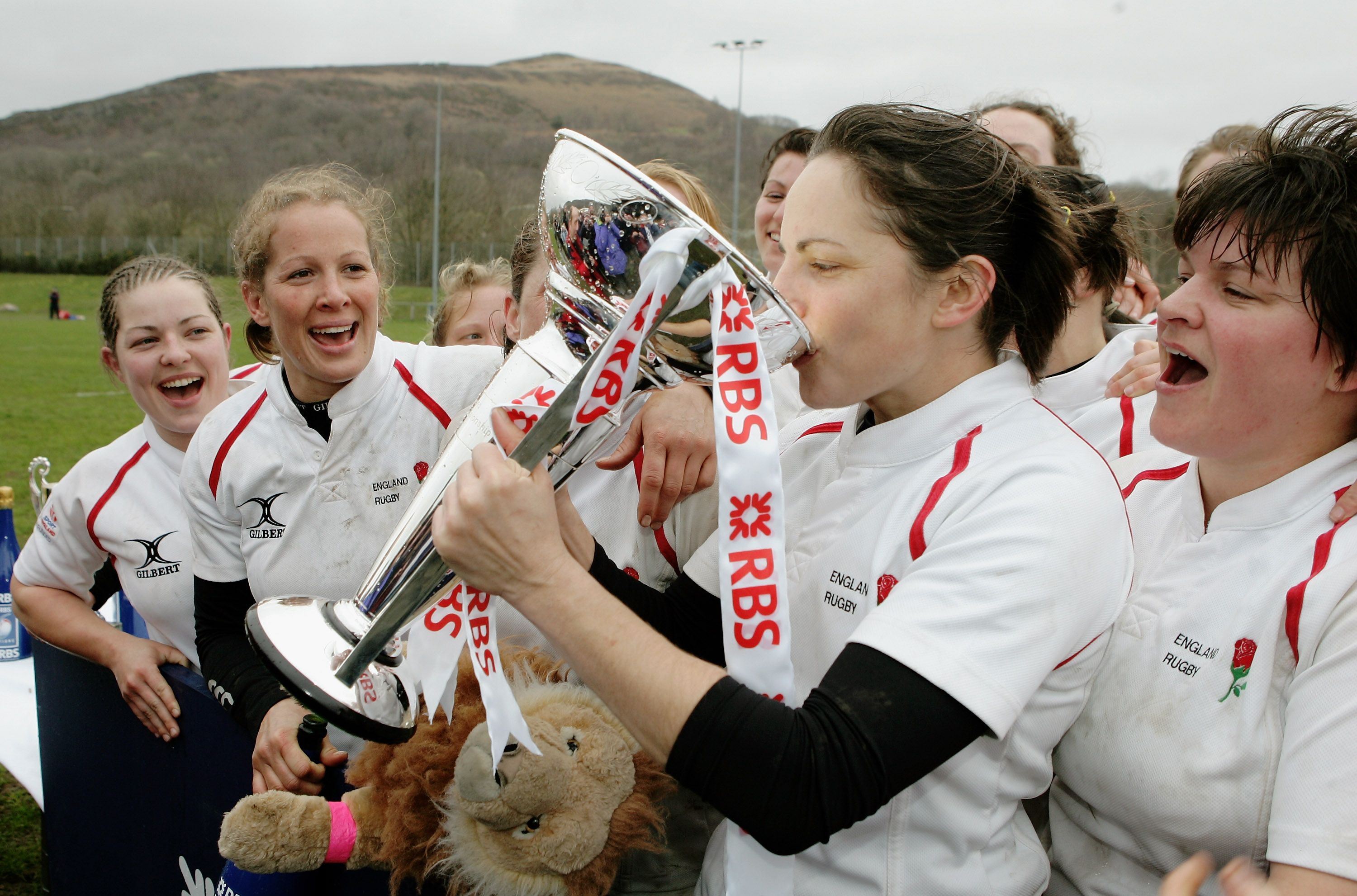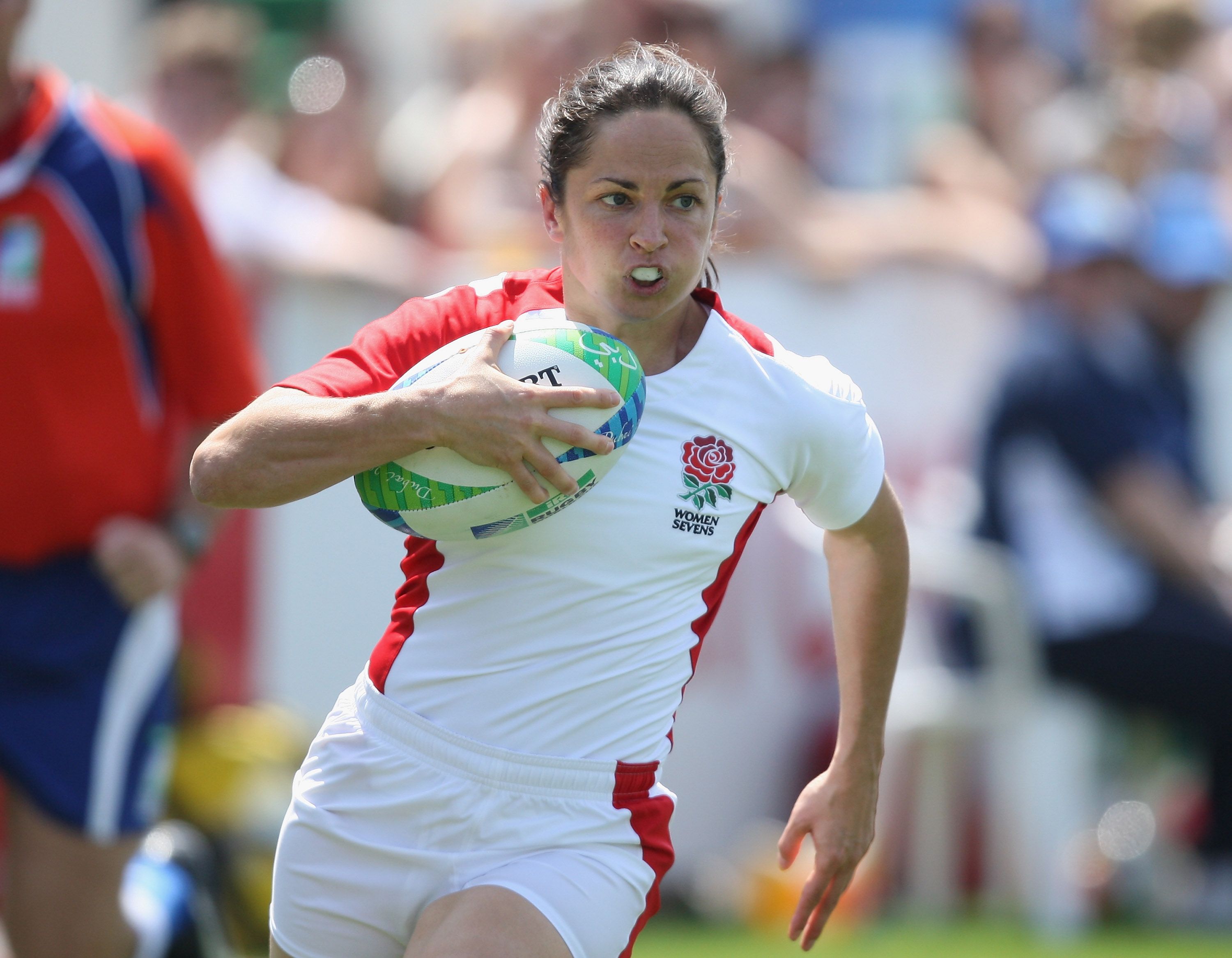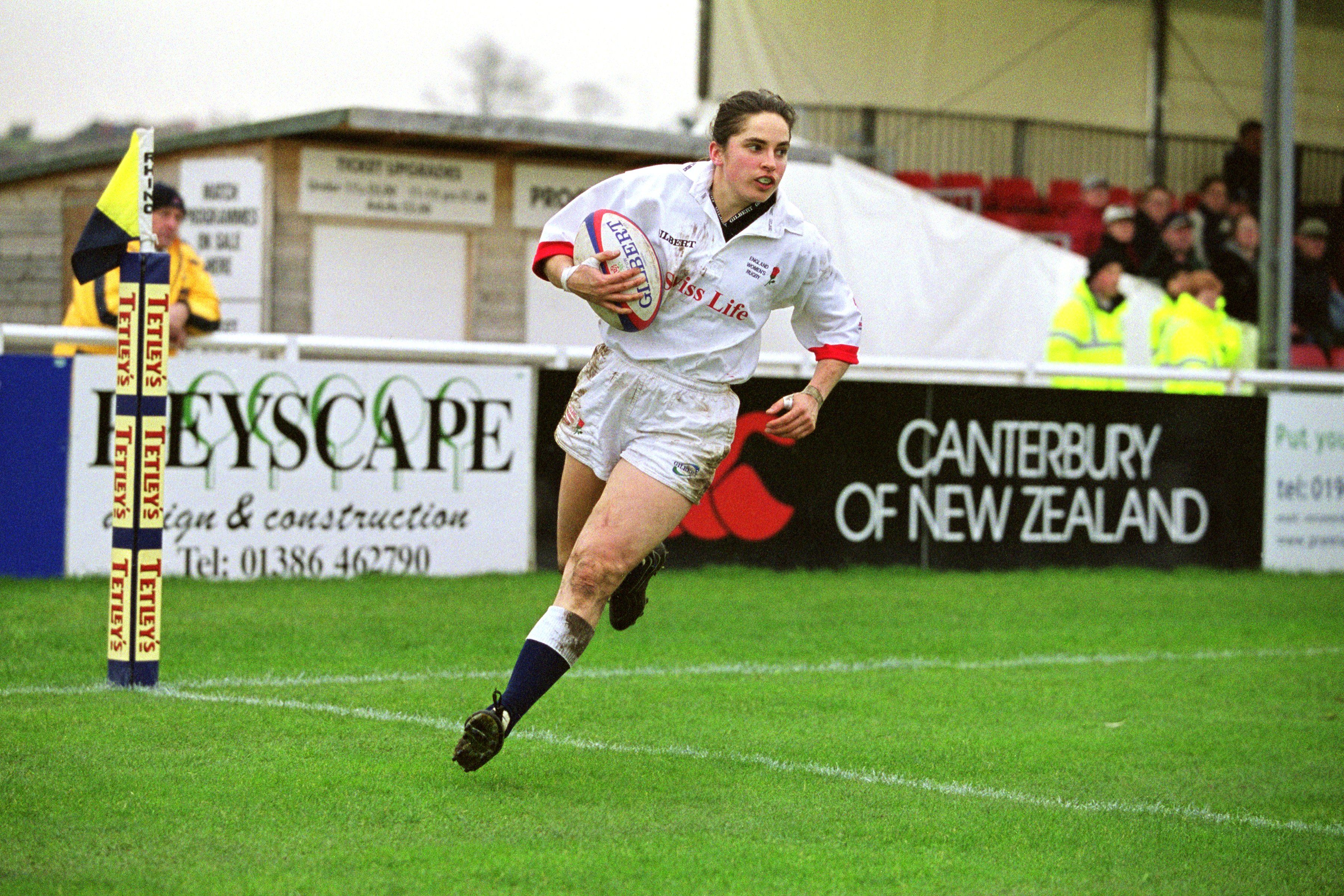England rugby legend Sue Day is the latest trailblazer to make a guest appearance on The Game Changers podcast. The versatile former fullback enjoyed a decorated career on the pitch, captaining the Red Roses at 15s and 7s, featuring in three World Cups and taking home three Grand Slam titles. Day is also England's record top try scorer with 61 from 59 international caps. Since her retirement, Day has continued to change the landscape of rugby. In 2013, she became Wasps FC's first ever female president in the club's 146-year history and was given an MBE in 2020 for her services to gender equality in sport.Unlike many young girls today, Day admitted it wasn't until she started university that she had her first taste of playing rugby. Attending a state school meant neither girls nor boys participated in rugby, so it took until her adulthood before she first picked up a ball.It was during her year out in Barcelona for her French and Spanish degree that rugby presented itself to her. Day admitted she was initially looking to join a hockey team while out in Spain, but she "got bitten by the bug" of rugby and never looked back. The team "took me to their hearts," which was a huge comfort for Day, who was living hundreds of miles away from home. "I love all sports but I think I just found my home in rugby, the simplicity of the game," she admitted.
Amateur to the world stage
Day’s career started off at an "entirely amateur" level, but she soon became one of England’s most established internationals.
She reflected on how much things have changed for girls and women looking to establish themselves in the sport. With more funding, facilities and investment, women's rugby already looks completely different, but there were also breakthrough moments throughout Day's career that boosted the profile of the women's game.
In 2003, England Women played at Twickenham for the first time and Day was part of that history-making team.
"Just to run out at Twickenham stadium, the home of England rugby, that felt really special for a number of reasons," she reminisced. "An amazing stadium to get to play in [...] but also really importantly in those days as well, the feeling that it meant that people believed in us."
Indeed, the backing from the men's side of sport plays a huge part in how much the women's game blossoms. While there is still a way to go, the paths have slowly been carved over the years and focus now shifts to making them more defined for female athletes.
"The feeling of acceptance from the rugby hierarchy, if you like, or the rugby community, when we got to play at Twickenham was really important to us because, the international women's game had come a long way by that point, they'd had to fight for everything that they possibly could to get to where they got to.
"People like Carol Isherwood and Deborah Griffin put in so much work to create the game at all, that it really felt like a huge step that we've made to get to Twickenham."
A role model on and off the pitch
Day not only held the torch as an example athlete, but her work off the pitch and in the boardroom adds to her repertoire as a leading role model in sport.
The former England skipper stressed the importance of her duty to create an environment the players feel comfortable in, and she is constantly leading by example for those looking up to her.
"The whole of society is crying out for good role models," she said. "And I think sportspeople have this amazing opportunity if they want to take it, to be those kind of role models, to act with integrity, to be the best that you can possibly be."
Day then reflected on the LGBTQ+ inclusivity rugby offers and admitted that although society was not as progressive in the 80s and 90s, the sport has always been a safe space for queer women.
"I found rugby to be that space where it was okay to be who you wanted to be, where you didn't have to hide who you were, or you didn't feel like you had to hide who you were.
"I certainly always felt supported by my teammates, by coaches, by people around me. So I appreciate that experience can be really different for different people in different sports. [It's] certainly harder for men in sports rather than women often to be out.
"But my experience was that it was such a welcoming, inclusive place to be."
Day then went on to state that when it comes to inclusivity in sport, there is always more that can be done. Many athletes both past and present are committed to promoting an equal stage for people of all backgrounds, and women's sport as a whole is largely considered an inclusive environment when it comes to sexuality and gender identity.
However, there have been some incidents of homophobia and transphobia that have reared their ugly heads over the last 12 months especially. Day has stressed the importance of "constantly striving to be better" to keep pushing stigma and inequality out of sport.
"I think the first thing to say is there is always more to do if you think you are in a team sport, or any sport, and you think you've made it, if you think you've done enough to include people, then you are wrong. There is always more to do."
Inspiring the next generation
Day is also a founding trustee of the Women's Sport Trust. After first getting involved in 2012, she has dedicated ten years to the charity, fuelled by her passion to make sport a fairer place for all.
"I'm deeply passionate about sport, I care about sport," she explained. "I have really strong feelings about how much sport can bring to people's lives. And so really [I] want to make sure that as many people as possible get the chance to be touched by sport.
"And the fact is, the fact was then, and it still is that women and girls do not have as many opportunities in sport as, as men and boys."
One of Day's biggest hopes is to see a sellout crowd at Twickenham for a women's match. Where she made history as part of the first women's team to play on the iconic turf, she hopes the work put in by herself and others will pave the way for another historic milestone in the near future.
"It would mean that we've made it. It [would mean] that little boys and girls everywhere will be able to see those inspirational players playing. It means the future is so bright for the game — the world is rugby's oyster when we've made it there."
This article was produced in partnership with The Game Changers podcast, which is supported by Sport England. You can listen to the full episode with Sue Day here.






















